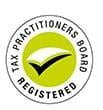ATO finalises guidance on the deductibility of costs relating to holding vacant land
This also extends to vacant land on which there is no substantial and permanent structure in use or available for use.
The finalised Tax Ruling TR 2023/3 provides the ATO’s view on when there is a substantial structure on land or the land is used in carrying on a business, and the deductibility of expenses relating to holding such land.
Determine if the land is vacant
Substantial and permanent structure on land
If the land has a substantial and permanent structure that has an independent purpose in the context of the land on which it is located. Structures that have the purpose of increasing the utility of another structure are not considered independent.
For example, fencing, silos and sheds are substantial structures that serve an independent purpose in the context of land used in primary production, but they do not serve an independent purpose in the context of residential land and rather, increase the utility of the proposed house on that land.
Structure in use or available for use
In order to be in use or available for use, the permanent and substantial structure must also be capable of being lawfully occupied. Premises that are capable of being occupied (whether residential or commercial) will always be considered available for use unless they have been deemed unsafe to occupy by a council, relevant body or relevantly qualified professional.
Residential land under construction or substantial renovation
Residential premises that are constructed or substantially renovated while the taxpayer holds the land are disregarded as a substantial and permanent structure and therefore considered vacant land, unless they can lawfully be occupied and are (or are available to be) leased, hired or licensed.
Deductibility of expenses relating to holding vacant land
The ATO has clarified that any interest (and borrowing costs) directly relating to the costs of constructing a substantial and permanent structure on land is not a loss or outgoing related to holding land but rather the cost of holding land, and it should form part of the third element costs of owning the asset for CGT purposes.
Interest incurred after land is sold or business activity has ceased
Section 26-102 does not deny interest deductions after the sale of land if the interest was deductible (and not denied by vacant land rules) immediately before the sale.
Land in use or available for use in carrying on a business
Deductions will be allowed for holding costs of vacant land if:
- the land is in use or available for use in carrying on a business or gaining assessable income
- the land is leased at arm’s length to another entity, it is then used or available for use in carrying on a business
- the land has mixed uses to the extent that the land is in use or available for use in carrying on a business.
Next steps
Commercial and residential premises may be required to prove as being capable of being occupied. This may be done by the issuance of an occupancy certificate or other local council approval.
Property developers
Property developers will generally not be affected by s 26-102(1) provided they are carrying on a business. There is no requirement for the land to be in active use in the business. Land held by a developer for future development would be considered available for use.
Where the land is held separately from the property development business, for example, by a special purpose vehicle (SPV), evaluation must be done to ascertain whether the SPV is subject to the limitation in s 26-102(1).
If the SPV is a discretionary trust, it would not be an exception under s 26-102(5).
Contact us
Reach out to our office if you have any queries in relation to this taxation ruling or if you would like to discuss further.


































